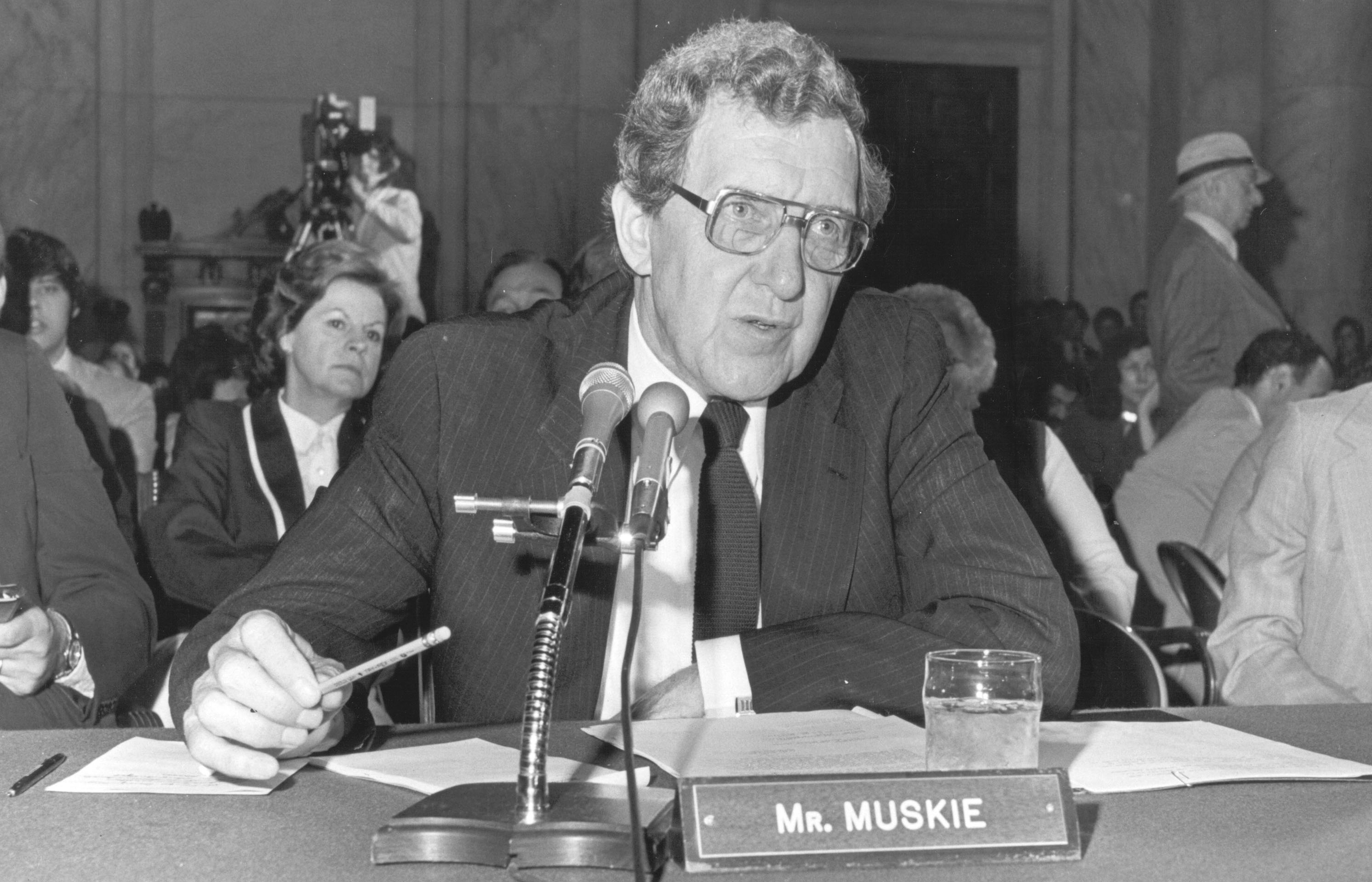
Edmund S. Muskie Oral History Collection
Document Type
Oral History
Publication Date
5-1-2002
Interview Number
MOH 350
Abstract
John Thomas McEvoy was born in Council Bluffs, Iowa on April 9, 1937 and grew up in Omaha, Nebraska. His mother was a schoolteacher and later a homemaker. His father worked for the Federal Home Loan Bank System. He studied at and graduated from Creighton Preparatory School, Creighton College of Arts, and Creighton Law School in Omaha. He obtained a Master of Laws Degree from Georgetown University in 1964. He served three years as an officer in the Army Judge Advocate General’s Corps in the Office of the Army General Counsel and the Office of the Special Assistant to the Secretary of Defense. He served Senator Tom Dodd as a legislative assistant in 1965 and Senator Joseph Tydings as a legislative assistant from 1966 to 1968. He was Staff Director of the District of Columbia Committee in 1969 and 1970. He was Senator Muskie’s Administrative Assistant from 1971 until the presidential election of 1972. After practicing law for two years in Washington, he returned to Muskie’s staff as counsel to the Budget Committee in 1974. He became Staff Director of that Committee in 1977. He left at the end of 1980 to resume the practice of law until 1989, when he became Executive Director of the National Council of State Housing Agencies until his retirement in 2001.
Use Restrictions
Copyright Bates College. This transcript is provided for individual Research Purposes Only; for all other uses, including publication, reproduction and quotation beyond fair use, permission must be obtained in writing from: The Edmund S. Muskie Archives and Special Collections Library, Bates College, 70 Campus Avenue, Lewiston, Maine 04240-6018.
Recommended Citation
Nicoll, Don, "McEvoy, John oral history interview" (2002). Edmund S. Muskie Oral History Collection. 246.
https://scarab.bates.edu/muskie_oh/246
Second part of interview
MOH_350_02_A_revised.mp3 (13404 kB)
Third part of interview
MOH_350_Transcript_revised.pdf (233 kB)
Transcript



Scope and Content Note
Interview includes discussions of: coming to Ed Muskie’s office in February, 1971; McEvoy’s role as Administrative Assistant; reorganization of the Senate office; the secretaries in Muskie’s office; problems with a concurrent Senate office and downtown Washington office; foreign policy staff problems and Les Gelb; Muskie’s demands on his closest staff; Muskie’s schedule; successful and unsuccessful speeches written for Muskie; Muskie’s 1972 presidential primary race; McEvoy’s work on the Hart campaign; returning to Muskie’s office as counsel to the Budget Committee; earliest Budget Committee meetings; becoming “designated fighter” to debate with Muskie over budget issues; Muskie’s approach to issues and positions on the budget; Civil Rights in the Senate; Muskie’s ability to use his temper to influence debate; Muskie’s rebuttal speech to Ford’s 1976 State of the Union address; and the Vietnam Veterans march and Brownie Carson story.